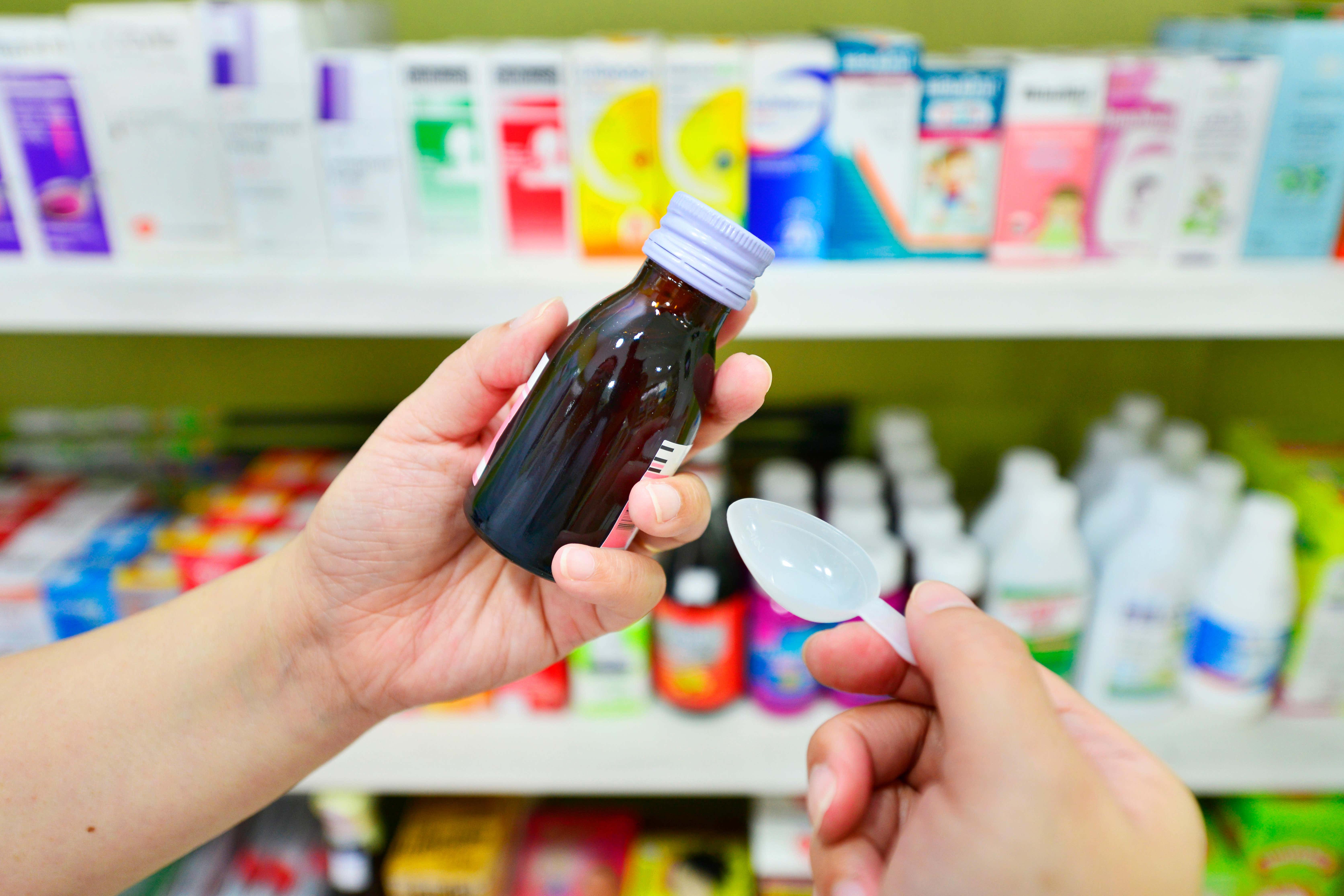Range of popular cough and cold medicines withdrawn over allergy fears
The ‘very small’ risk of suffering a severe allergic reaction is thought to be among people who have taken pholcodine in the 12 months before surgery.

Your support helps us to tell the story
From reproductive rights to climate change to Big Tech, The Independent is on the ground when the story is developing. Whether it's investigating the financials of Elon Musk's pro-Trump PAC or producing our latest documentary, 'The A Word', which shines a light on the American women fighting for reproductive rights, we know how important it is to parse out the facts from the messaging.
At such a critical moment in US history, we need reporters on the ground. Your donation allows us to keep sending journalists to speak to both sides of the story.
The Independent is trusted by Americans across the entire political spectrum. And unlike many other quality news outlets, we choose not to lock Americans out of our reporting and analysis with paywalls. We believe quality journalism should be available to everyone, paid for by those who can afford it.
Your support makes all the difference.Some popular cough and cold medicines have been withdrawn from sale over the “very small” risk some patients could suffer a rare allergic reaction.
Watchdog the Medicines and Healthcare products Regulatory Agency (MHRA) said products containing pholcodine should be withdrawn over worries people using them may go on to experience a severe allergic reaction to muscle relaxants (neuromuscular blocking agents) that are used during general anaesthesia in surgery.
Around half of all general anaesthetics are thought to use these blocking agents (also known as NMBAs).
The risk of suffering a severe allergic reaction (anaphylaxis) is thought to be among people who have taken a cough or cold product containing pholcodine in the 12 months prior to undergoing surgery.
The risk to patients who have used pholcodine is very small. If you are due to have surgery, please speak to your pharmacist or medical team for advice
Dr Alison Cave, MHRA chief safety officer, said: “Safety is our top priority, and we keep the safety of medicines under continual review.
“Following a thorough scientific safety review of all the available evidence on pholcodine, together with advice from the independent Commission on Human Medicines, it has been recommended, as a precautionary measure, that these products should no longer be used.
“If you are taking a cough or cold medicine, check the packaging, label or patient information leaflet to see if pholcodine is a listed ingredient.
“If it is, and you have any questions, you can talk to your pharmacist who will suggest an alternative medicine.”
Dr Cave said anyone due to have an operation under general anaesthesia should tell the anaesthetist if they think they have used pholcodine, particularly in the past 12 months.
“The anaesthetist will be well placed to take this into account,” she said.
“Anaesthetists are highly trained in managing anaphylaxis.”
The European Medicines Agency recommended the withdrawal of pholcodine medicines from the European market in December last year.
In the UK, healthcare workers have been told to stop supplying the products “immediately” and “quarantine all remaining stock”.
Professor Claire Anderson, president of the Royal Pharmaceutical Society, said: “If you are taking a cough medicine (including tablets and syrups), check the packaging, label or patient information leaflet to see if pholcodine is a listed ingredient – if it is, and you have any questions, you can talk to your pharmacist who can suggest a different medicine suitable for you.
“The risk to patients who have used pholcodine is very small. If you are due to have surgery, please speak to your pharmacist or medical team for advice.
“A cough usually clears up within three to four weeks. You can treat it with other cough medicines or hot lemon and honey (not suitable for babies under one year old).
“Rest up if possible and you can try paracetamol or ibuprofen, if suitable, to treat any pain. If your cough persists for longer than three to four weeks seek advice from a healthcare professional.
“This withdrawal is needed as safety of patients is paramount and we support efforts to ensure that all medicines on the market are safe and effective.”
The medicines listed by the MHRA as being recalled are:
The Boots Company PLC
– Boots Night Cough Relief Oral Solution, PL 00014/0230– Boots Dry Cough Syrup 6 Years+, PL 00014/0523– Boots Day Cold & Flu Relief Oral Solution, PL 00014/0565
Thornton & Ross Limited
– Cofsed Linctus, PL 00240/0097– Care Pholcodine 5mg/5ml Oral Solution Sugar Free, PL 00240/0101– Galenphol Linctus, PL 00240/0101– Galenphol Paediatric Linctus, PL 00240/0102– Galenphol Strong Linctus, PL 00240/0103– Covonia Dry Cough Sugar Free Formula, PL 00240/0353
Bell Sons & Company (Druggists) Limited
– Pholcodine Linctus Bells Healthcare 5mg Per 5ml Oral Solution, PL 03105/0059– Numark Pholcodine 5mg per 5ml Oral Solution, PL 03105/0059– Well Pharmaceuticals Pholcodine 5mg per 5ml Oral Solution, PL 03105/0059– Superdrug Pholcodine Linctus BP, PL 03105/0059– Strong Pholcodine Linctus BP, PL 03105/0060
Pinewood Laboratories Limited
– Pholcodine Linctus BP, PL 04917/0002– Strong Pholcodine Linctus BP, PL 04917/0005
LCM Limited
– Pholcodine Linctus, PL 12965/0030
Glaxosmithkline Consumer Healthcare (UK) Trading Limited
– Day & Night Nurse Capsules, PL 44673/0068– Day Nurse Capsules, PL 44673/0069– Day Nurse, PL 44673/0075